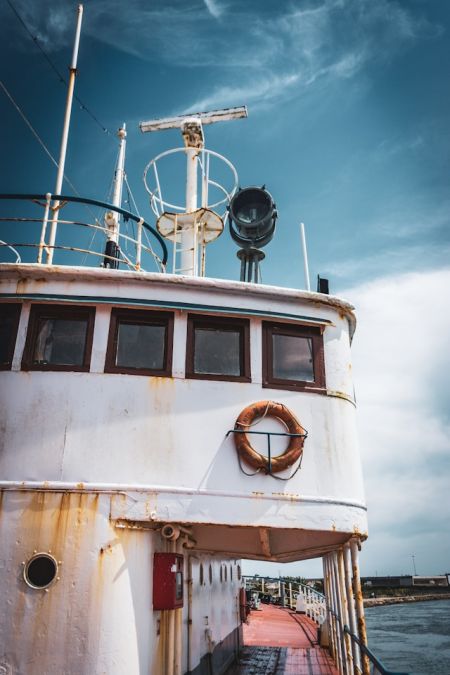The Sale of Vessels Based on the Law of December 31, 1903, Relating to the Sale of Certain Abandoned Objects
Authors: Jérôme MOULET and Nicolas MARTY, Lawyers at the Marseille Bar
Comments on CA Montpellier 5th Chamber Section A, JUDGMENT OF DECEMBER 05, 2013 – General Register Number: 12/08522
Excerpts from the Commented Judgment:
“The Law of December 31, 1903, relating to the sale of certain abandoned objects, which forms the basis of the request for authorization to sell filed by SARL Y, states in its first paragraph: ‘Movable objects entrusted to a professional to be worked on, shaped, repaired, or cleaned and which have not been collected within one year may be sold under the conditions and forms determined by the following articles’. In this case, the contract binding the parties is in no way comparable to the contracts referred to by the provisions of the Law of December 31, 1903, as it is a simple rental contract, concluded for a period of one year renewable by tacit extension.”
Comments:
 “A vessel is also a thing, a movable asset capable of financial evaluation and which often represents significant, even colossal, economic value. Therefore, the market value of the vessel inevitably, but rightly, attracts the interest—not to say the covetousness—of natural or legal persons seeking the disinterestedness of the claims they may hold” (The Protective Seizure of the Vessel Following its Adjudication, By Jérôme MOULET, Lawyer at the Marseille Bar).
“A vessel is also a thing, a movable asset capable of financial evaluation and which often represents significant, even colossal, economic value. Therefore, the market value of the vessel inevitably, but rightly, attracts the interest—not to say the covetousness—of natural or legal persons seeking the disinterestedness of the claims they may hold” (The Protective Seizure of the Vessel Following its Adjudication, By Jérôme MOULET, Lawyer at the Marseille Bar).
Many vessels remain stored in an abandoned state with marine professionals. Article 1 of the Law of December 31, 1903, relating to the sale of certain abandoned objects, states: Movable objects entrusted to a professional to be worked on, shaped, repaired, or cleaned and which have not been collected within one year may be sold under the conditions and forms determined by the following articles.
Case law regarding the sale of vessels on this basis is relatively rare. The “judgment rendered by the Montpellier Court of” Appeal on December 5, 2013, is quite unique and warrants comment. Mr. Francisco X… had entered into a rental agreement with SARL Y for a land-based wintering spot for his JEANNEAU brand vessel, for a monthly fee of 31.00 euros.
After several unsuccessful formal notices, Mr. X was significantly in arrears on rent payments.
SARL Y filed a request with the president of the Sète District Court to be authorized to proceed with the public sale of the vessel.
The president of the Sète District Court granted the request and appointed Maître BRINGUIER, a bailiff in Sète, to proceed with the public auction of the vessel.
Mr. Francisco X… appealed this decision on November 14, 2012. He asked the Montpellier Court of “Appeal to overturn the order of the President of the Sète District Court on the grounds that the latter was irregular because, by not mentioning the day, time, or place of the sale, it did not comply with the provisions of Articles 2 and 3 of the Law of December 31, 1903.
The Montpellier Court of Appeal overturned the order authorizing the sale of the vessel and rejected the request on the grounds that “the contract binding the parties is in no way comparable to the contracts referred to by the provisions of the Law of December 31, 1903, as it is a simple rental contract, concluded for a period of one year renewable by tacit extension.” Although the Court rejected the request to obtain the sale of the vessel, the judges do not oppose the sale of vessels based on the Law of December 31, 1903, relating to the sale of certain abandoned objects.
 In this case, the judgment is justified by the existence of a deposit contract between the shipyard and the vessel owner. The deposit contract, coupled with a service contract, necessarily entails a transfer of custody of the vessel and a surveillance obligation on the part of the depositary (Le Droit Maritime Français – 1998 – n° 584 – The custody of vessels in marinas and shipyards).
In this case, the judgment is justified by the existence of a deposit contract between the shipyard and the vessel owner. The deposit contract, coupled with a service contract, necessarily entails a transfer of custody of the vessel and a surveillance obligation on the part of the depositary (Le Droit Maritime Français – 1998 – n° 584 – The custody of vessels in marinas and shipyards).
The outcome would have been different if the deposit contract had been terminated prior to the sale of the vessel. The existence of an ongoing deposit contract is an obstacle to the sale of the vessel based on the Law of December 31, 1903.
Indeed, Article 1 of the law of December 31, 1903, exclusively targets movable property entrusted to a professional for processing, shaping, repairing, or cleaning. The designation of these four operations necessarily refers to a contract for services or work, and not to a contract of deposit.
Law No. 2016-816 of June 20, 2016, for the Blue Economy (Article 54) amended the provisions of the Law of December 31, 1903, relating to the sale of certain abandoned objects, which concern vessels and pleasure boats deposited with a professional for repair, maintenance, storage, or custody and which have not been collected within one year.
Since these provisions came into force, the professional concerned may file a request with the District Court judge for the public auction of the abandoned pleasure boat to be ordered. In the event of a lack of bids, the order states that the vessel is handed over to a decommissioning company for its decommissioning or dismantling.
This mechanism applicable to vessels is a relevant tool for marine professionals, such as shipyards, to facilitate the sale of abandoned vessels stored on their premises.
This is one of the legal tools enabling the decommissioning of pleasure vessels that are no longer seaworthy.
